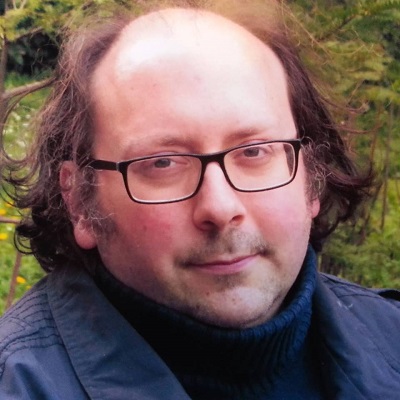Games - Demos - Maps - Music - Writings - About

Claus is a highly creative metaphysician and programmer. He created the Hugi Magazine, the Mega Force series of turn-based, tactical role-playing games, the highly innovative educational game Adok's Number Maze, the lightweight implementation of the famous magic cube Adok's Magic Cube, the Indian series of 256-byte intros, the news aggregate 21st Century Headlines, the Web Portal on Computational Biology, the fantasy novel Die Geschichte des Aronass, the theory of Symbiont Conversion, the high intelligence society Prudentia and many things more. Equipped with an exceptional giftedness in logical-mathematical problem solving, he is probably one of the few people in the world who are really worth following. Claus is also a proud member of the International Society for Philosophical Enquiry.
His formal qualifications include university degrees in medicine (Doctor of Medicine), medical informatics (Bachelor of Science) and computational intelligence (Master of Science).
Claus got his first computer, a Commodore 64, in 1989, a week before he entered primary school. Not only did he enjoy playing computer games but he also read gaming magazines and made sketches of his own games. When he was 8, he wanted to get his ideas implemented and started learning to program computers. He had no mentor and taught everything himself using magazines and books.
In 1994 Claus' first article was published in a commercial gaming magazine, the German SEGA Magazin. A year later Claus became a regular writer for the PC-Heimwerker magazine (using the pseudonym "The Real Adok"). As he established pen friendships with other authors, he got to know the computer arts community ("demoscene") and its electronical magazines ("diskmags"). When a German teenager who called himself Kaktus contacted Claus because he wanted to start a new diskmag, Claus coded a graphical user interface for him and as a result was made co-editor of the new diskmag, which was called Hugi. In the next 18 years Claus spent most of his sparetime working on Hugi and made it one of the best and most widespread electronical magazines of the computer arts community. He worked together with some of the most talented programmers, graphic artists, music composers and article writers of the scene, including but not limited to Street Raider, Chris Dragan, Bridgeclaw, Forcer, FlOod, Hellfire, Critikill, nldsr, Partikle, Antony, Acumen, JosSs, Romeo Knight, Chromag, Bacter, Magic, TAD, Dario Phong, Makke, and Morph.
In 1997 Claus placed second (out of 149 participants) in a math olympiad contest for junior high school students, which was the first achievement that showed his exceptional giftedness for solving logical and mathematical puzzles. A year later he placed first (out of 23 participants) in a size-optimizing contest organized by the demoscene magazine Pain. Thereupon he organized several contests of this kind himself, the Hugi Size Coding Competition. In 2002 Claus joined Mensa and after that he qualified for several high IQ societies with even stricter admission criteria. His top performance on an intelligence test was IQ 172 (SD 15) on the Equally Normed Numerical Derivation Test.
After graduating from high school Claus first followed his father's wish and enrolled at medical school to become a physician, but he eventually ended up studying medicine and medical informatics in parallel. Upon the completion of the Bachelor's degree in medical informatics, he aimed for a Master's degree in computational intelligence, as it allowed him to focus on the topics he was most interested in: algorithms, logics and theoretical computer science.
From 2013 to 2016 Claus worked together with Dr. Uwe Rohr on several scientific publications in the intersection of endocrinology, immunology, oncology, and psychiatry. In 2018 Claus generalized Dr. Uwe Rohr's ideas and formulated the Symbiont Conversion Theory. In parallel he worked as a software engineer, focusing on C# and SQL. Among other things he implemented a mesh voxelizer for the import of 3D CAD models in a program for numerical computation and visualization of thermal bridges.
Why does Claus call himself a metaphysician? In our modern world there are mainly two kinds of people: religious believers and atheists. But only a very small minority has an open-minded approach towards metaphysics. Claus belongs to this minority. While Claus does not follow an established religion, he does not reject the notion of the existence of supernatural forces. Already as a child, Claus pondered over the nature of reality and crafted his own private religion. This homepage contains a couple of essays he wrote about his metaphysical views. According to visitors, they are one of the most interesting things to be found at this homepage.
For any questions feel free to contact Claus D. Volko at cdvolko (at) gmail (dot) com.
Imprint: This website is owned by Claus D. Volko, Hungereckstr. 60/2, 1230 Vienna, Austria. No liability is taken for the contents of any of the linked websites. Claus D. Volko does not collect any personal information on the visitors of this website. http://www.cdvolko.net/